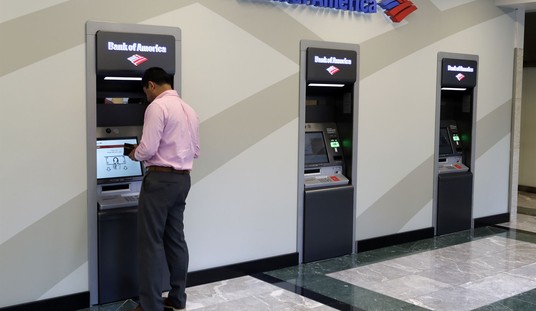Many people are trying to wrap their heads around the MF Global debacle. A lot of funny terms are being tossed about; customer segregated funds, investable funds, hypothecated funds. All those funny words create confusion about what they did, what a trader perceives when they establish a clearing relationship, and the responsibility of the exchange.
So here is my attempt to put you in the shoes of the trader and to change the terms so you might understand.
First, traders need cash to make trades. The exchange requires the clearing firm to post margin to hold those trades, and the clearing firm guarantees that the trades have the requisite amount of cash behind them. That makes the relationship, or distribution channel look like this:
Trader<——–>Clearing Firm (MF Global)<———–>Exchange ($CME, $ICE)
Cash flows between all parties. The trader establishes a relationship with the clearing firm. Essentially it is no different than you going into a bank and opening up an account. The trader deposits money into their account. The Clearing Firm in turn signs a formal guarantee to the exchange clearing house that they will stand behind this traders activity. That means if the trader loses all their money and more, the clearing firm is on the hook for it and will chase down the trader for the money. The exchange is out of the relationship. Get it?
The trader makes a trade. The exchange has a margin requirement that it charges the clearing firm, who in turn grabs the money out of the traders account and posts it with the clearing house to hold the position. If the trade turns out to be a good trade, a winner, after the trader closes out the trade the exchange pays the clearing firm the margin back plus the amount of money the trader earned, and the clearing firm deposits it into the traders account. If it’s a loser, when the trader closes the trade, the clearing firm takes money out of their account and gives it to the clearing house, who remits to the clearing firm on the other side of the trade.
Recommended
Traders view the dollar amounts in their accounts just like a shop keeper looks at inventory. Idle inventory can be sold and add to profitability. However, the trader never knows exactly when the next opportunity is. They have little control over their supply chain. Because of that, they keep a lot of excess cash sloshing around in their accounts earning no interest.
Aha, but this is the opportunity for the clearing firm. In their agreement with the trader, the firm can take any excess cash laying around in that account and “invest” it in securities and earn a profit for the firm, not the trader. This gives incentive for firms to try and attract as many traders, and as much money as they can. The more excess cash laying around, the more “free cash flow” they can earn overnight in investments.
However, we have been in a 0% interest rate environment for quite some time. Firms aren’t earning much on these overnight funds, and it’s hurting their cash flow. They can’t do much about it except hope the Fed starts hiking rates so they can earn more free money.
In MF Global’s case, instead of trimming costs and waiting out the storm, they decided to get tricky and begin trading their own capital, their own money. That way, they could wait out the 0% environment, and continue to aggressively expand operations. Since all the big firms were trading and making billions, why not them? Heck Goldman and Morgan had quarters where they didn’t have a losing day! This is easy. Shooting fish in a barrel.
The problem is they invested in the wrong stuff and instead of shooting, they became the fish.
But, it should have been no problem. They take their hit, move on. At the worst, they go bankrupt, the traders that had a clearing relationship with them dissolve it and go clear somewhere else. It happens from time to time. Firms will also disband and go out of business, traders are flexible, they move.
When a firm ceases operations, it tells the exchange clearinghouse, and it’s traders. The trader establishes a new relationship with a new firm, and that firm instructs the exchange clearing operation to transfer all the positions and margin money to the new clearinghouse. This is done instantaneously, seamlessly, and overnight. Sometimes even intraday.
But remember, that’s only the money that is posted at the exchange clearinghouse on margin. The rest of the money that sits in inventory in the traders account is either turned into a check and walked over, or wired over to the new firm.
But, MF Global’s case, when they got into a trading hole, they needed to come up with money for their trades to guarantee them to their own counter parties. Instead of going to another bank and borrowing, they took their own customers excess money. They stole the inventory of their own traders. It would be no different than a criminal stealing from a warehouse and then fencing products on the street.
Is the picture becoming clearer?
So where is the money? My guess is that it went to the counter parties to the trades MF Global made. However, that is such a tangled web that it’s difficult for anyone to make heads or tails of it. Trading isn’t a person to person transaction like buying a good in a store. One trader trades, and then shops it to another, sells a piece of it over here, and so on.
But, that doesn’t take away from the very criminal acts of MF, and the top management bears responsibility for those acts. They committed fraud, theft, now perjury, and probably are in violation of all the RICO statutes too.
The traders get mad at the exchanges, because the exchanges have a responsibility to audit the books of the clearing firm. It’s one check and balance that they have. They are also mad because of the way they were treated. The exchange locked them out because MF couldn’t account for the money that was guaranteeing their trades. Who can blame them?
But really, the blame lies with one firm, and one firm only. Jon Corzine’s MF Global. They left a large stain on an industry that previously considered a customer’s excess cash as a sacred asset. What would you think of the banker that stole money out of your checking account? Let’s hope it never happens again, but in a too big to fail crony capitalism environment, my bet is that it does.

























Join the conversation as a VIP Member